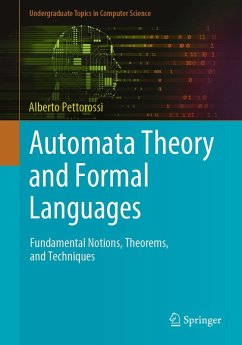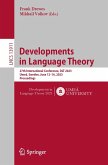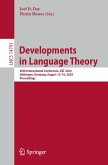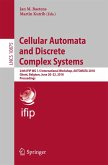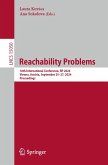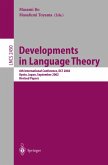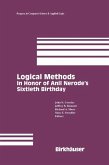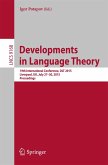Presenting basic notions and fundamental results, this concise textbook is structured on the basis of a correspondence that exists between classes of automata and classes of languages. That correspondence is established by the fact that the recognition and the manipulation of sentences in a given class of languages can be done by an automaton in the corresponding class of automata. Four central chapters center on: finite automata and regular languages; pushdown automata and context-free languages; linearbounded automata and context-sensitive languages; and Turing machines and type 0 languages. The book also examines decidable and undecidable problems with emphasis on the case for context-free languages.
Topics and features:
- Provides theorems, examples, and exercises to clarify automata-languages correspondences
- Presents some fundamental techniques for parsing both regular and context-free languages
- Classifies subclasses of decidable problems, avoiding focus on the theory of complexity
- Examines finite-automata minimalization and characterization of their behavior using regular expressions
- Illustrates how to derive grammars of context-free languages in Chomsky and Greibach normal forms
- Offers supplementary material on counter machines, stack automata, and abstract language families
This highly useful, varied text/reference is suitable for undergraduate and graduate courses on automata theory and formal languages, and assumes no prior exposure to these topics nor any training in mathematics or logic.
Alberto Pettorossi is professor of theoretical computer science at the University of Rome Tor Vergata, Rome, Italy.
Dieser Download kann aus rechtlichen Gründen nur mit Rechnungsadresse in A, B, BG, CY, CZ, D, DK, EW, E, FIN, F, GR, HR, H, IRL, I, LT, L, LR, M, NL, PL, P, R, S, SLO, SK ausgeliefert werden.

